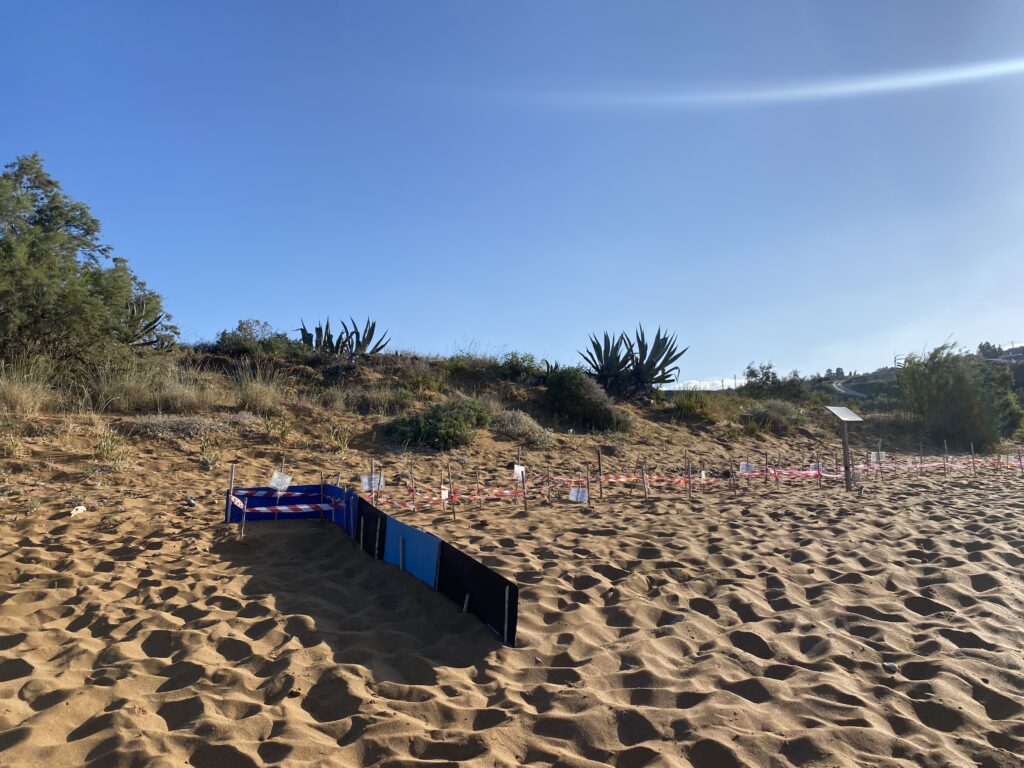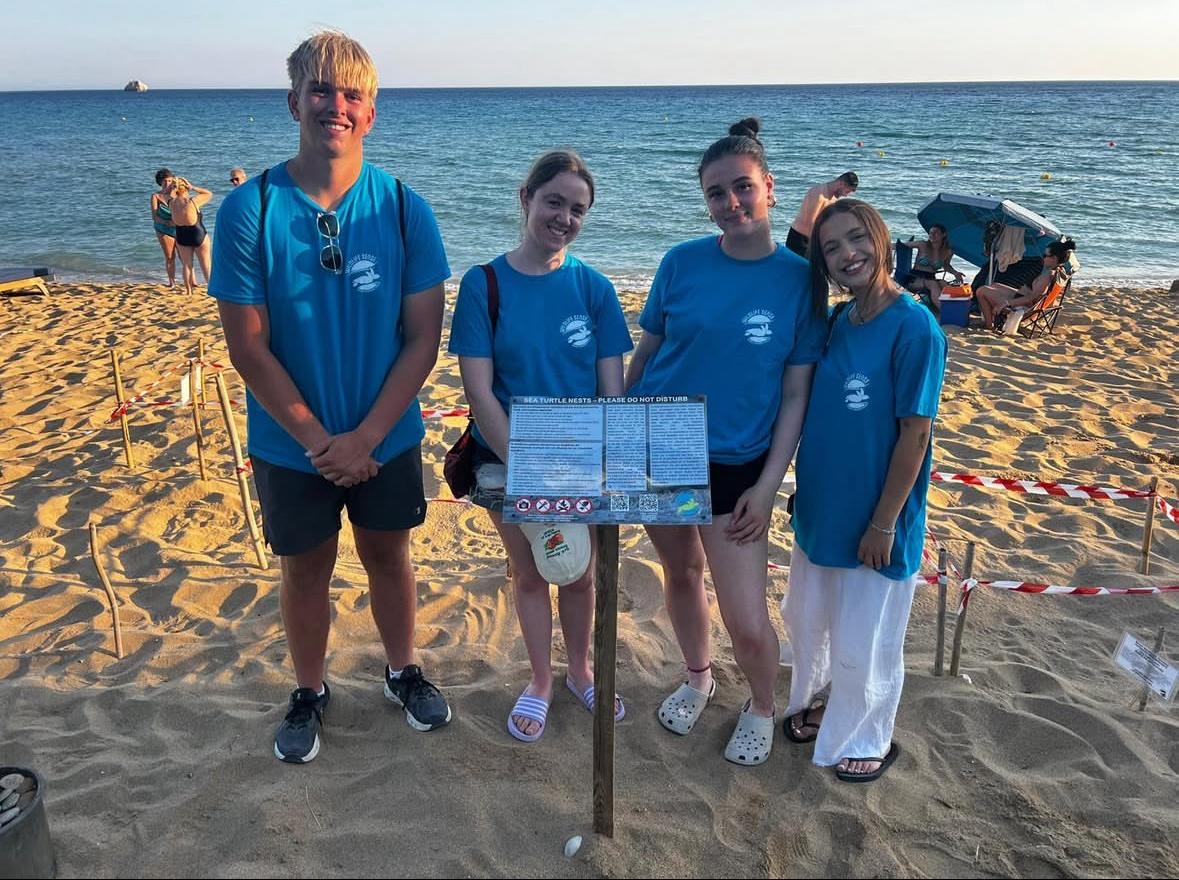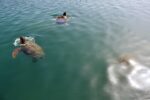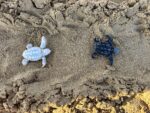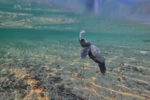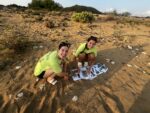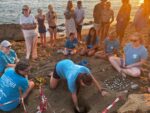Our Latest News- July 15, 2025
Argostoli Field Station
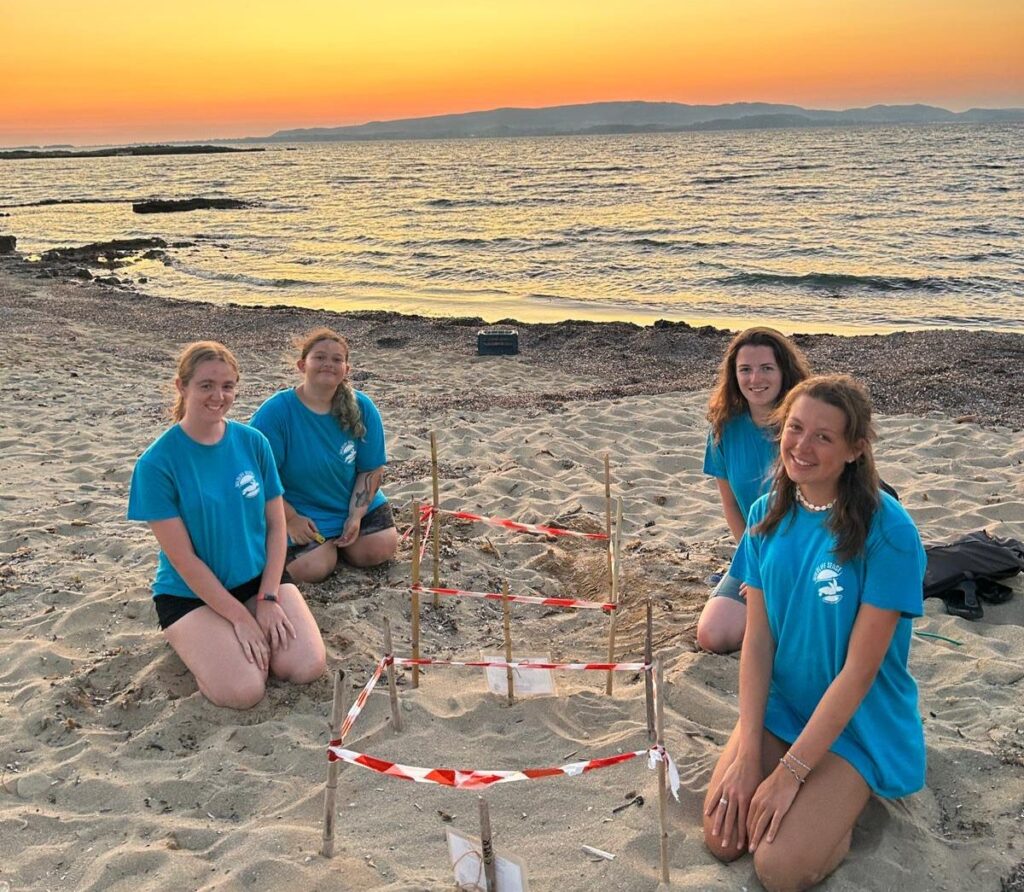
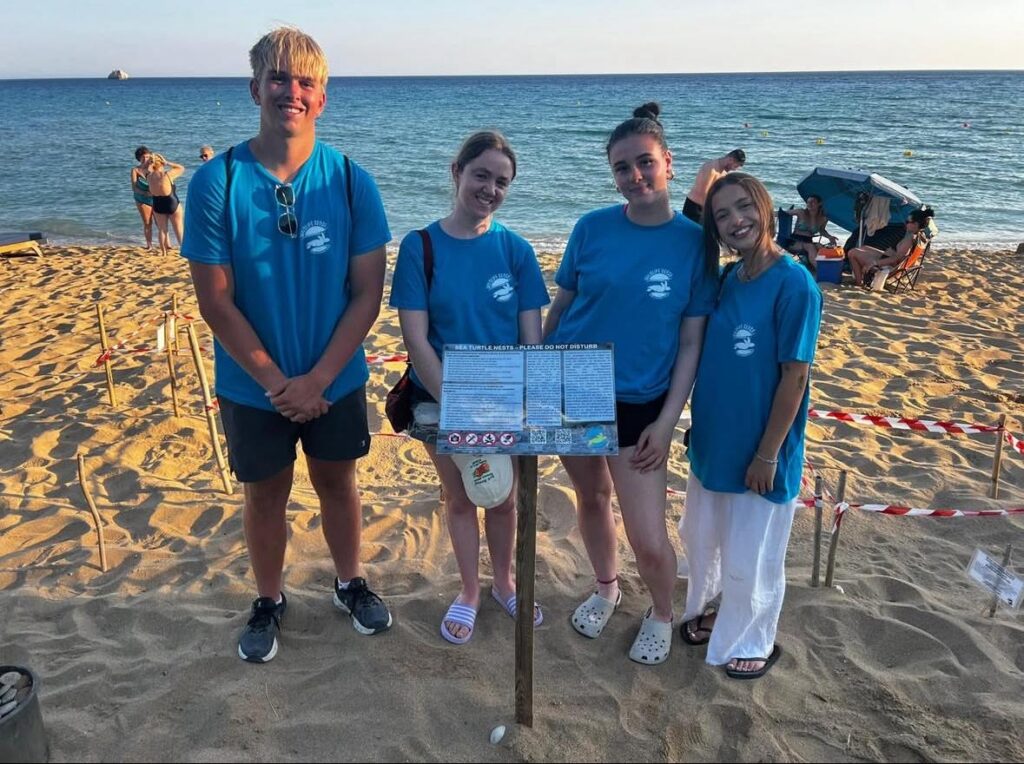
Over the past couple of weeks, our nest count has risen to 88 in the Argostoli area! Our volunteers have had some busy mornings finding and protecting these nests, but also have been enjoying the evening activities, with the sunset swims being very popular. Our new public awareness shift has been up and running for a few weeks and has gained more traction due to our new information board and nest hatchery signs. Our amazing volunteers will be on Megali Ammos beach most evenings from 7 pm, ready to answer all your buzzing questions! Come along and learn something new and exciting about how you can help us protect the sea Turtles of Kefalonia!
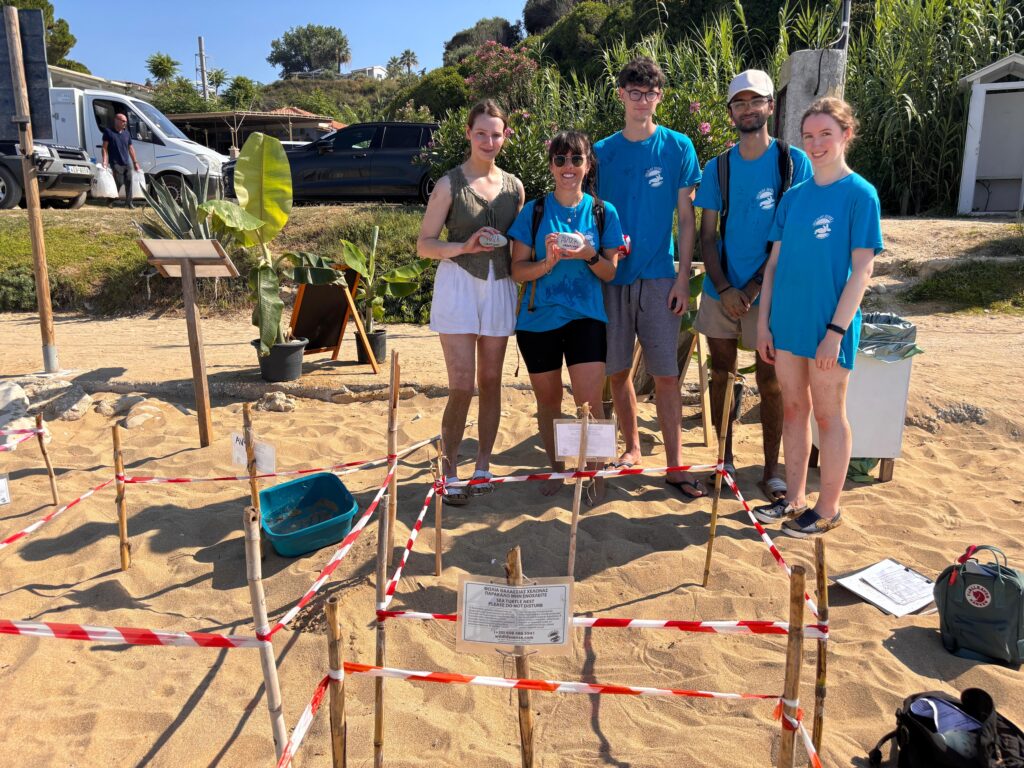
This week we are starting Hatchling Rescue, with four of our nests hitting forty-five days. In the coming weeks, our volunteers will be keeping a keen eye on our nests overnight, looking for any indicators that hatchlings may be ready to emerge and begin their journey. This is very exciting as it means that hatching season is upon us, leading us into a crossover between the nesting and hatching seasons- a very busy time indeed! We are really looking forward to seeing what this new season has in store for Argostoli!
Education Program
The thrill of nesting season continues here in the Lourdas area; our total nest count is now at 28! Due to the recent high winds and waves, we have had to conduct moisture checks and relocations for a number of these nests. In addition to natural threats, one nest had to be relocated due to a JCB on the beach, in one notable instance! Luckily, our team was patrolling and the nest was moved to safety, but this shows just how vital it is to have regular monitoring early in the day.
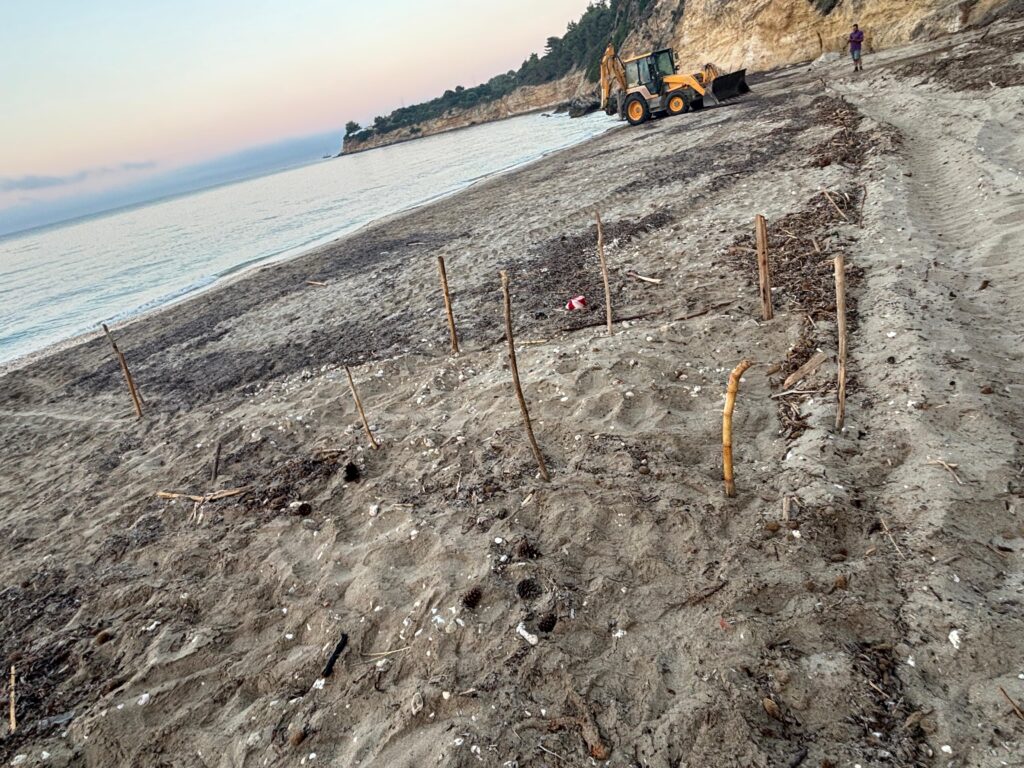
There have also been some thrilling interactions witnessed during our harbour shifts, with behaviours such as chasing and different foraging events being seen on multiple occasions.
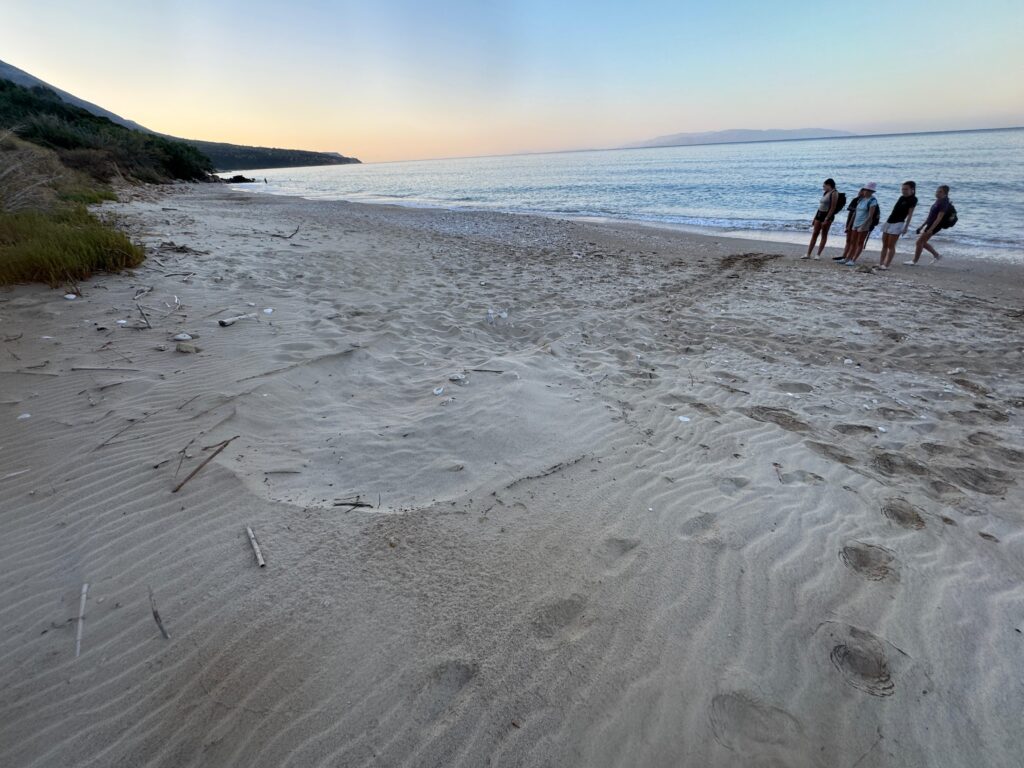
Our mission to map seagrass has also continued despite the slightly wavier conditions lately, with some very special moments where volunteers have been able to watch the turtles swimming from the sea!
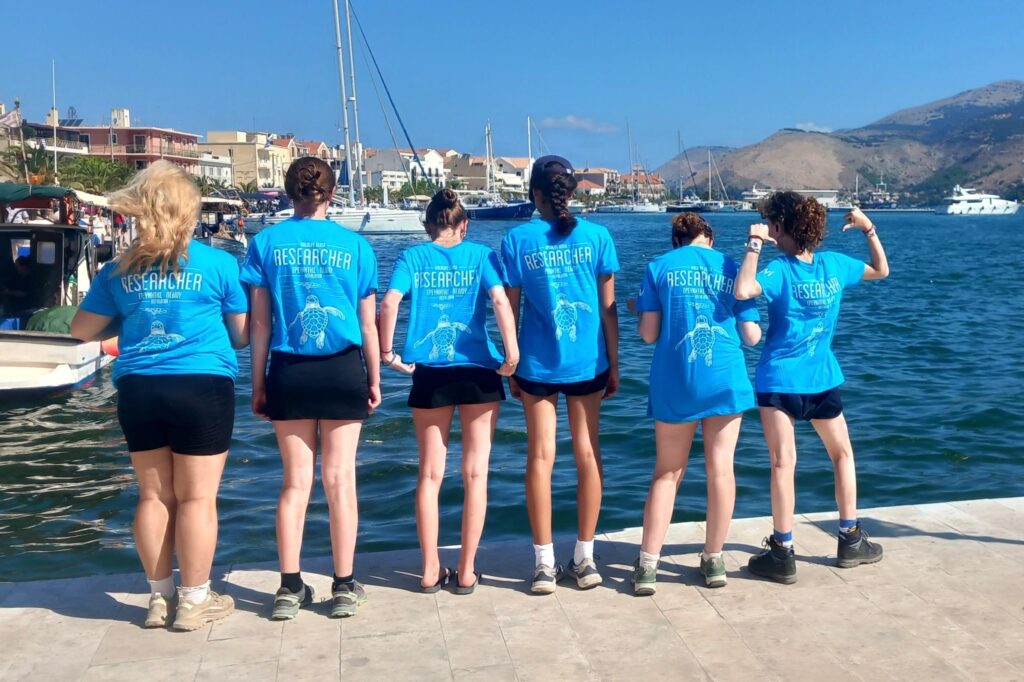
During their time with us at the Education Programme our volunteers have enjoyed giving back to the environment through beach cleans. With their help, a variety of different beaches in the local area have been cleared up for the benefit of both our wildlife and fellow beachgoers.
Skala Field Station
We now say goodbye to our third group of the season and welcome our fourth. This group really worked hard, with 170 quadrats being surveyed in two weeks on their sand dune survey. As well as this, they took over 4000 pictures of the sea floor during snorkel surveys, with 12.4% of those photos being identified as posidonia. This group also took full advantage of the evening activities and participated in a very competitive quiz night.
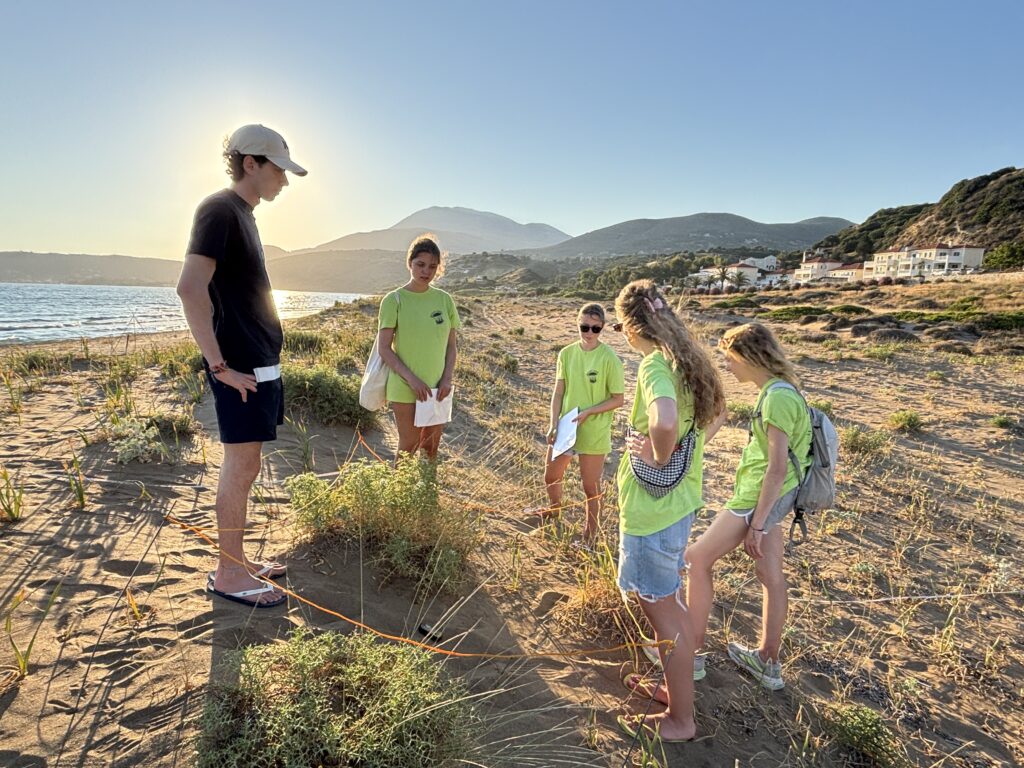
As well as taking advantage of the activities, they all took advantage of their days off, where all the volunteers went on a boat trip to the island of Ithaca, as well as trips to Argostoli to see the turtles in the harbour. As we welcome our fourth group of the season, our volunteers double in number; this just means that we will be able to collect even more valuable data for the project. This has already been proven, as on their first day of shifts, they already managed to survey 25 quadrats is just one sand dune survey. They also had a successful first snorkel survey where the conditions were slightly more wavy than usual; however, they took it all in their stride. We look forward to hearing all the adventures they get up to on their day off and seeing all of the valuable data they collect !!!
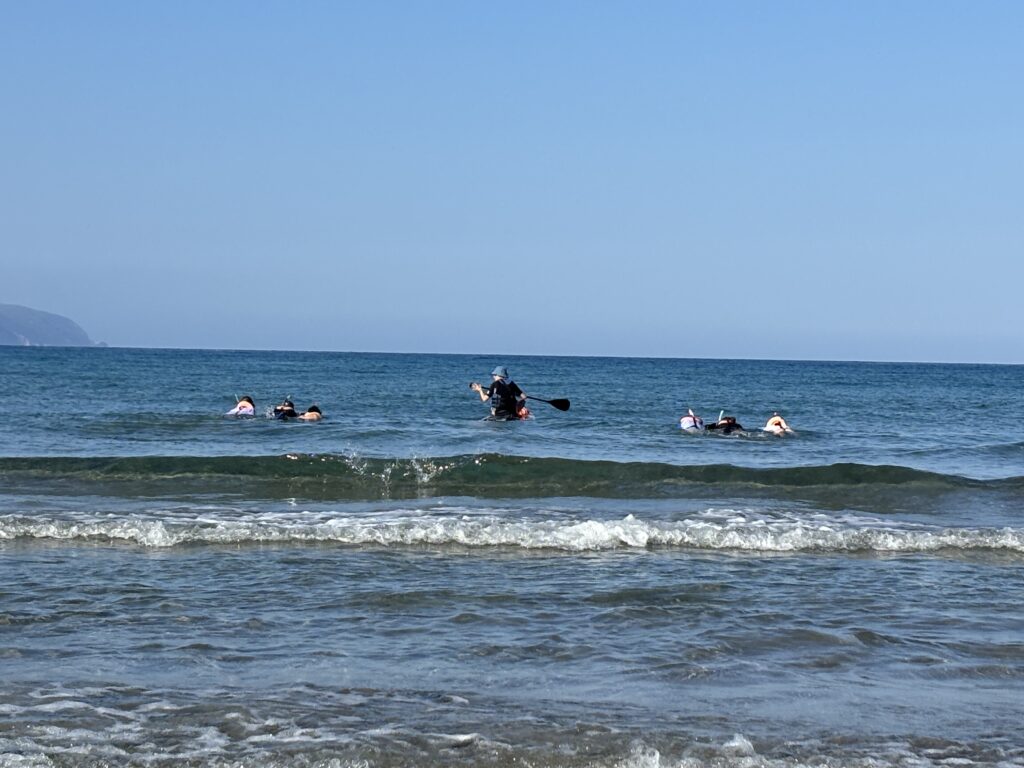
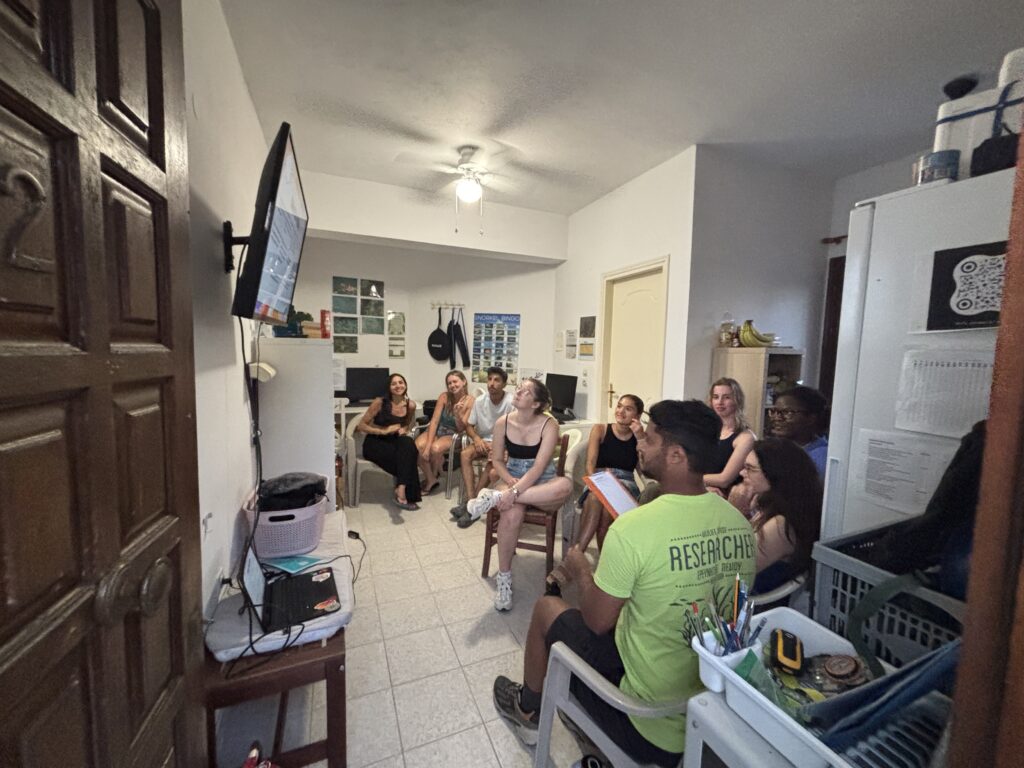
Svoronata Field Station
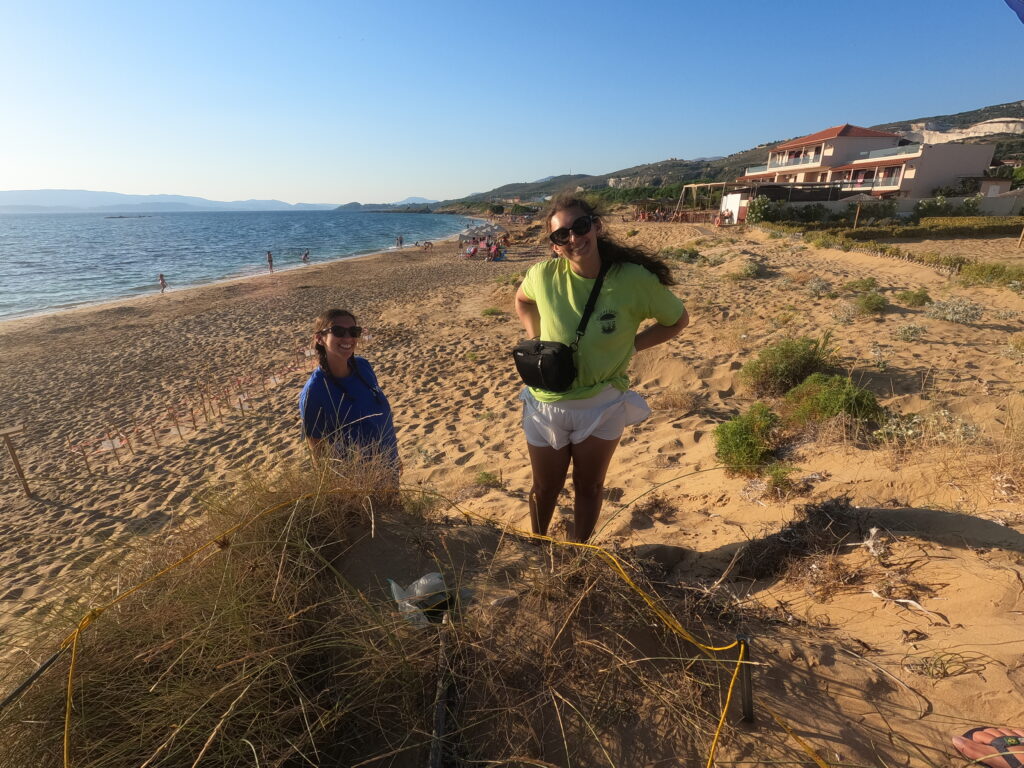
The newest group of volunteers has provided us with the opportunity to implement new additions to our surveys. By creating new techniques, we are able to be more time-efficient and produce more accurate data. In numbering our photos during beach clean surveys, we can gather scientific evidence of the types of trash found in different areas of the beaches we survey. This allows the group we work with, NOAA, to accurately assess the debris that is predominant at each of the beaches and what that means in terms of the best way to inform the public.
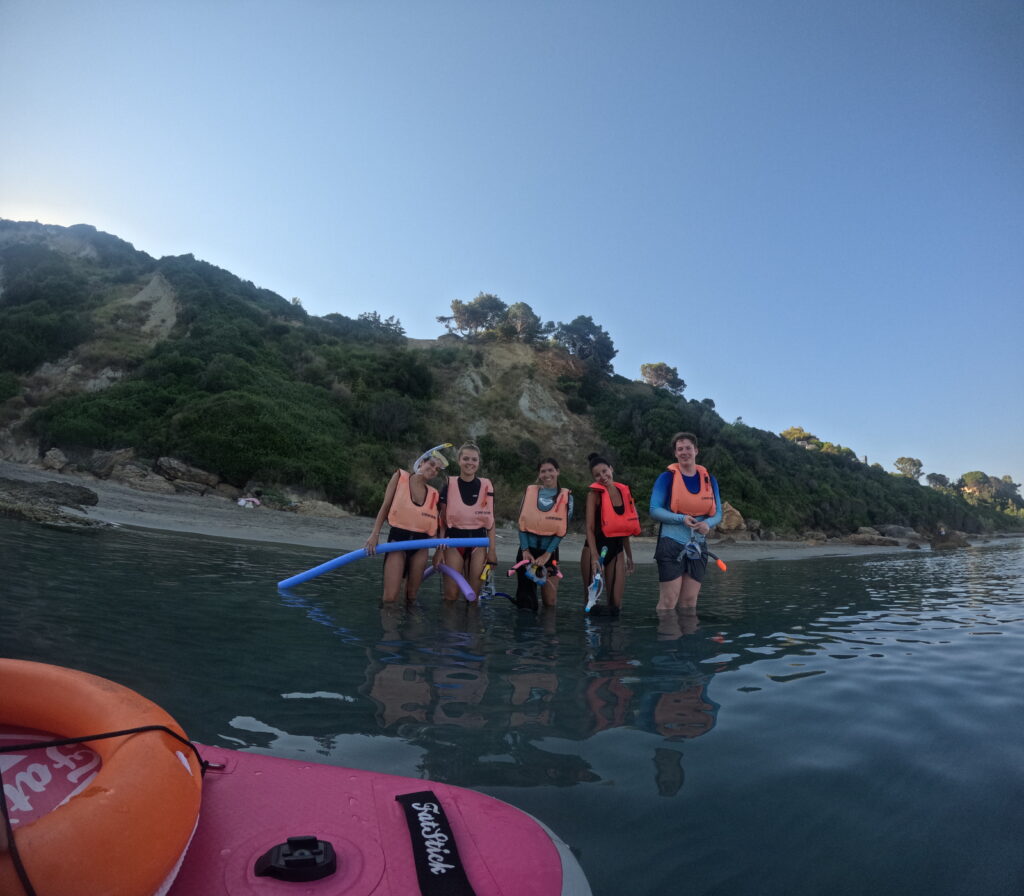
Through working with Cornell University, we have many different ways we gather evidence of the birds we observed, including photographs using our cameras and audio recordings of their calls using Cornell University’s eBird program.
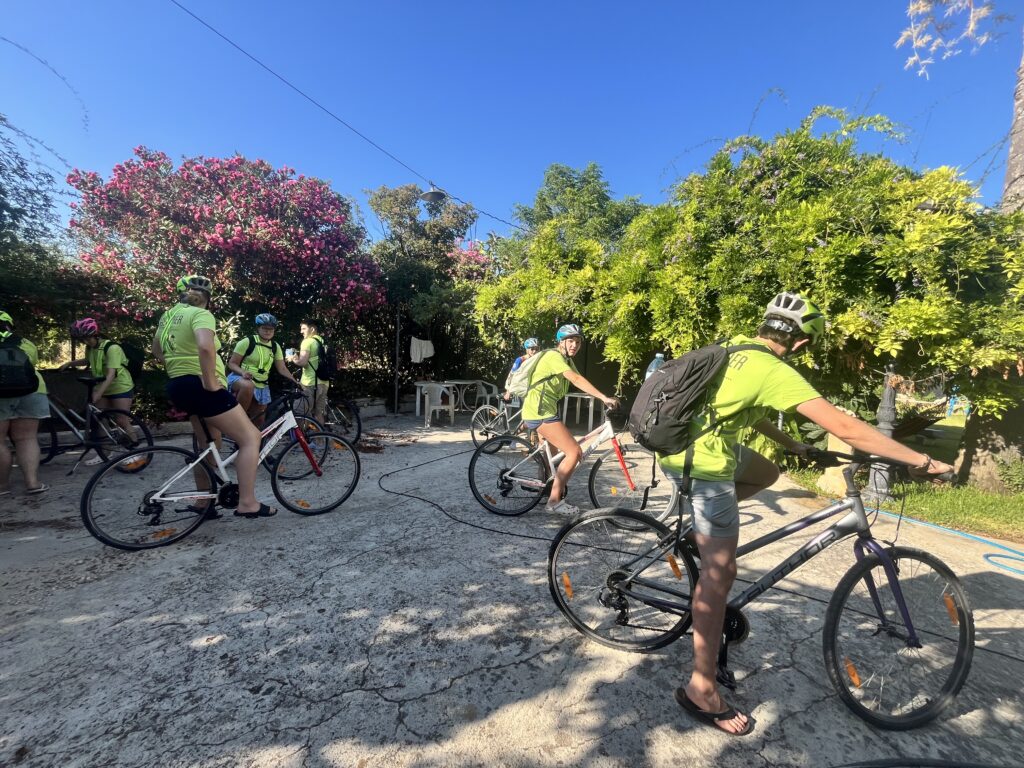
Our newest plant guide has allowed us to more accurately distinguish between the different types of local plants inhabiting the sand dunes. Using this guide, we have been able to identify ten new species of plants that, in previous years, we had never seen. Even through the elevated heat levels this last week, our volunteers were able to map 16.1km of seafloor in search of seagrass growth, identify twenty-six species of plants, record and submit thirty-four species of birds, and complete sixty-eight readings of light pollution. We appreciate everything that this last group of volunteers has been able to accomplish despite challenges, and we look forward to our next group accomplishing even more!
Lixouri Field Station
Here in Lixouri, we have reached a nest count of over 100! This is thanks to the hard work and efforts of all of the volunteers and staff. The 100th nest was found on Megas Lakkos laid by a newly tagged turtle from the night survey, which they named Colada!
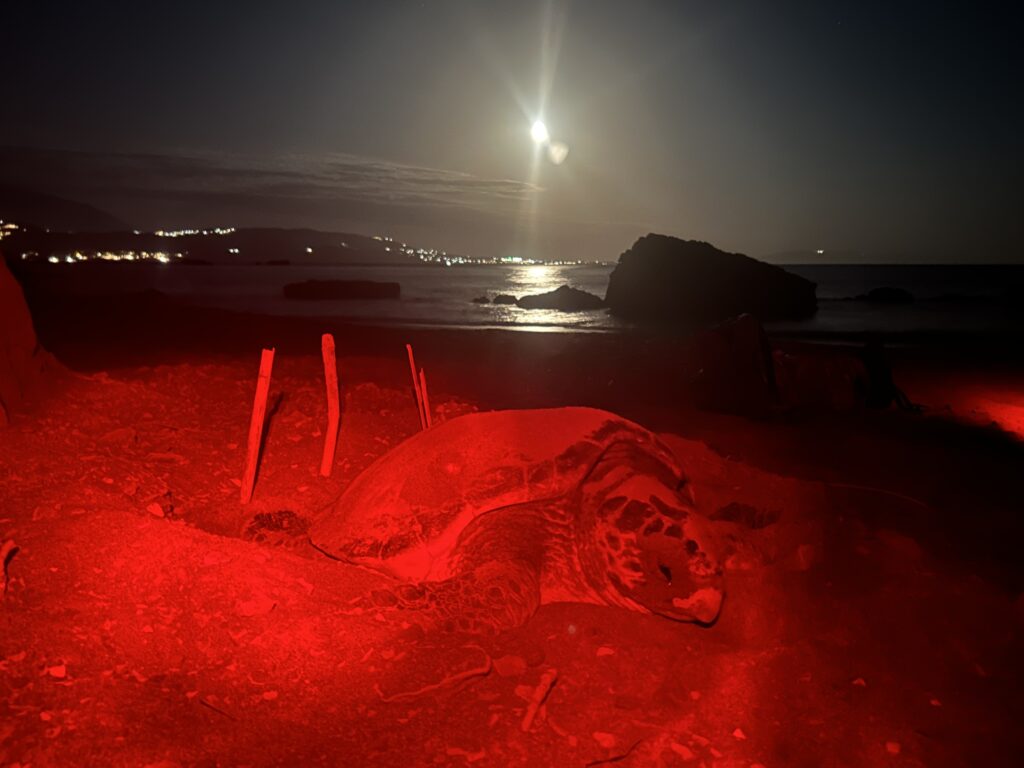
It’s been a windy week here in Lixouri as well. The volunteers were met by a nice surprise from the strong winds the night before their morning survey. The protection of the nests was compromised, and the volunteers were more than happy to help rectify this damage. This proves that it’s not only small mammals and larger beings that destroy the protected nests, but also abiotic factors. We also noticed the lack of turtles spotted on Night Survey shifts whilst these winds were occurring.
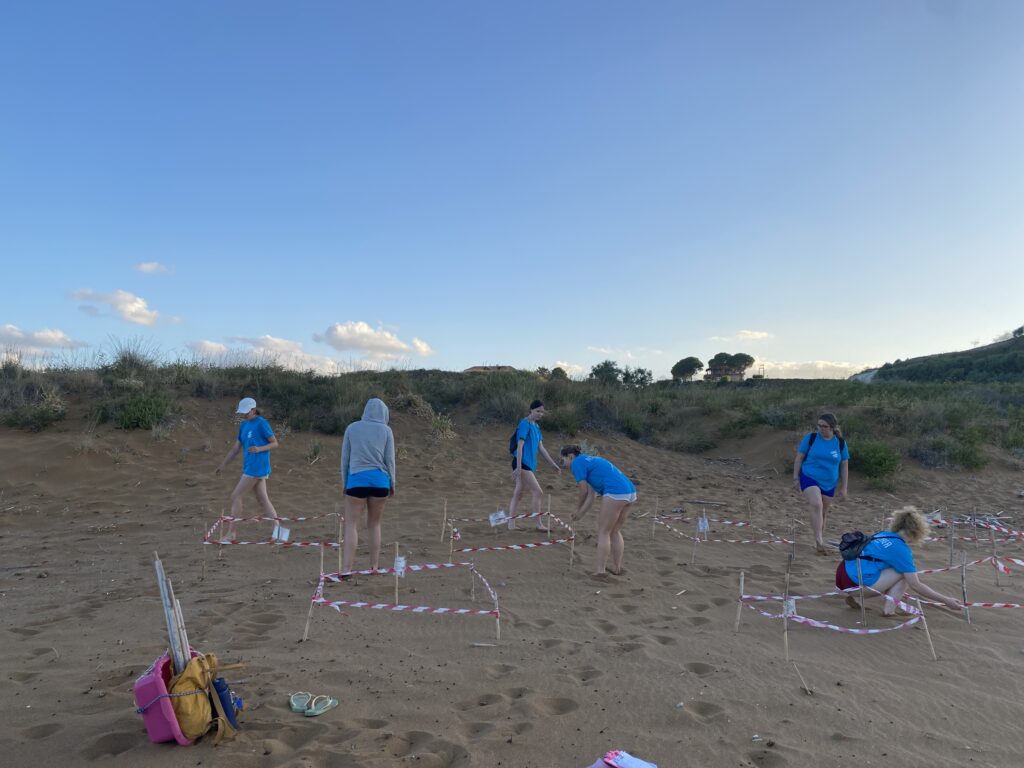
We are approaching hatchling season! Lixouri’s nests on Vatsa, Megas Lakkos, and Lepeda have now reached over 45 days of incubation, meaning hatchlings are expected to be recorded hopefully soon! The team is super excited to welcome them into the world. This also means the team will be undertaking a new shift, known as hatchlings rescue; another night shift for the volunteers to look forward to!
